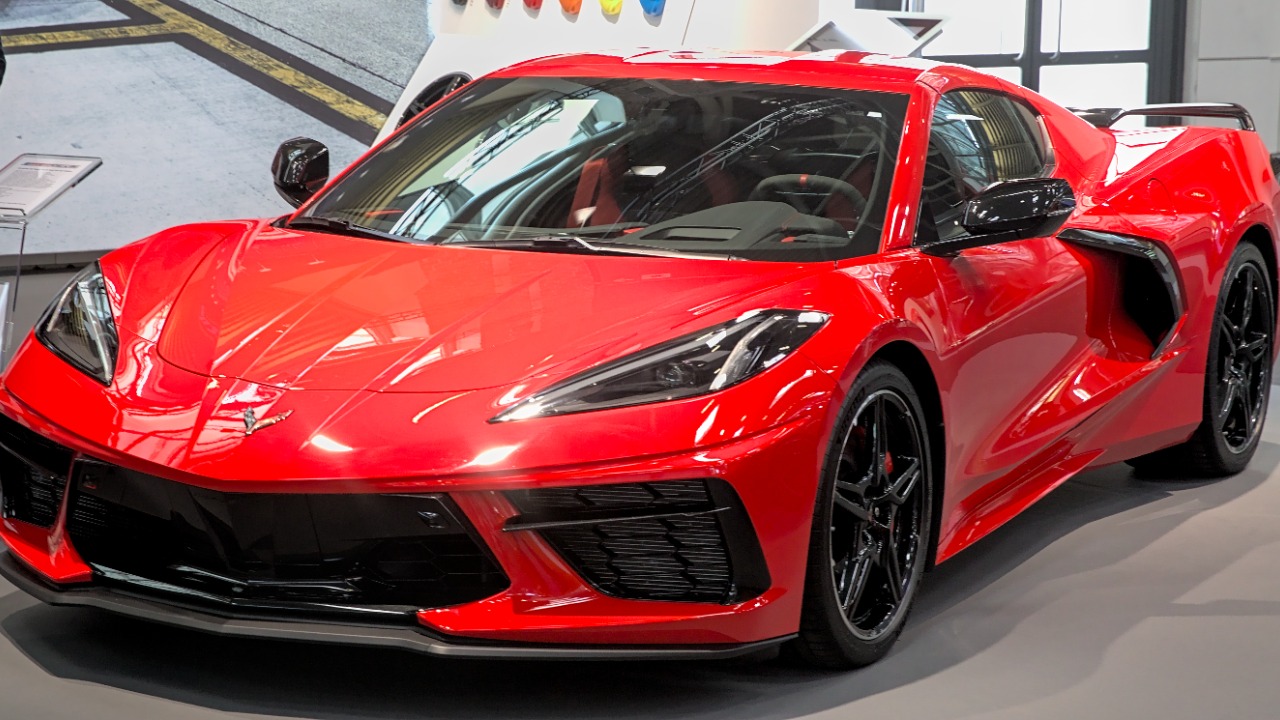
General Motors President Mark Reuss recently addressed the challenges of developing an electric version of the Chevrolet Corvette, stating that it is “Not Something That’s Easy Right Now.” This statement underscores the complexities involved in transitioning the iconic sports car from its traditional internal combustion engine to an electric powertrain. Reuss’s comments, made on October 20, 2025, reflect GM’s cautious approach to integrating electric vehicle (EV) technology into high-performance models like the Corvette, highlighting both technical and market barriers.
GM President’s Statement on Electric Corvette Feasibility
Mark Reuss’s assertion that an electric Corvette is “Not Something That’s Easy Right Now” directly responds to inquiries about the feasibility of such a model. This remark highlights the significant technical and market challenges that GM faces in electrifying the Corvette. Reuss did not provide a specific timeline for when an electric version might be available, indicating that the project is not an immediate priority. Instead, he emphasized that while the Corvette remains a priority within GM’s lineup, the focus is currently on maintaining its traditional powertrain amidst evolving industry demands.
Reuss’s comments suggest that the electric Corvette is viewed as a long-term possibility rather than an imminent project. This aligns with GM’s broader EV strategy, where the company is prioritizing the electrification of other models, such as trucks and sedans, over high-performance sports cars. The Corvette, with its storied history and loyal fan base, remains a symbol of GM’s commitment to traditional automotive performance, even as the industry shifts towards electrification. Reuss’s update positions the electric Corvette as a future consideration, contingent on overcoming current technical and market hurdles.
Challenges in Electrifying Sports Cars Like the Corvette
The engineering challenges associated with electrifying the Corvette are significant. Reuss implied that balancing the car’s performance heritage with the limitations of EV technology, such as battery weight and range, presents a formidable obstacle. The Corvette’s reputation is built on its powerful V8 engine and distinctive sound, elements that are difficult to replicate in an electric vehicle. These technical challenges are compounded by market factors, as many Corvette enthusiasts prefer the traditional driving experience over the silent operation of an electric powertrain.
Market dynamics also play a crucial role in GM’s hesitation to electrify the Corvette. Consumer preferences for the Corvette’s iconic V8 sound and power delivery are strong, and transitioning to an electric model could risk alienating the car’s core fan base. Reuss’s statement on October 20, 2025, highlights the broader automotive industry’s transition towards EVs, yet acknowledges that sports cars like the Corvette face unique adaptation hurdles. These challenges underscore the complexity of maintaining the Corvette’s legacy while adapting to new technological realities.
Corvette’s Role in GM’s Electrification Roadmap
The Chevrolet Corvette occupies a unique position within GM’s electrification roadmap. While the company is investing heavily in EV technology, the Corvette remains a symbol of traditional automotive performance. Reuss’s comments suggest that GM is prioritizing hybrid or extended-range options for the Corvette over full electrification in the near term. This approach allows GM to preserve the Corvette’s iconic status while gradually introducing new technologies that align with the company’s broader EV goals.
The Corvette’s history as a gas-powered icon is a key factor in GM’s cautious approach to electrification. The car’s legacy is built on its high-performance capabilities, and any transition to an electric model must carefully balance these attributes with the benefits of EV technology. Reuss’s perspective that an electric Corvette is “Not Something That’s Easy Right Now” reflects GM’s strategic investments in Ultium battery technology, positioning the Corvette as a potential test case for future EV sports car viability. This approach allows GM to explore electrification possibilities while maintaining the Corvette’s core appeal.
Industry Reactions and Future Implications
Reuss’s statement on the challenges of electrifying the Corvette reflects broader industry trends and competitive pressures. Rivals such as Porsche and Ford are already introducing electric sports cars, which could eventually pressure GM to electrify the Corvette. However, Reuss’s comments suggest that GM is taking a measured approach, focusing on advancing battery technology and infrastructure before committing to an electric Corvette. This strategy allows GM to remain competitive while ensuring that any future electric Corvette meets the high-performance standards expected by enthusiasts.
The potential pathways forward for an electric Corvette are contingent on several factors, including advancements in battery technology and changes in consumer preferences. Reuss’s implication that an electric version could emerge in the future highlights GM’s commitment to innovation while preserving the Corvette’s legacy. Fan and expert responses to the update have been mixed, with some viewing the delay as a way to preserve the Corvette’s core appeal, while others see it as a missed opportunity to lead in the EV sports car market. Ultimately, GM’s approach reflects a careful balance between tradition and innovation, as the company navigates the evolving automotive landscape.
In conclusion, the prospect of an electric Chevrolet Corvette remains a complex and challenging endeavor for GM. Mark Reuss’s recent comments highlight the technical and market barriers that must be overcome before such a model can become a reality. While the electric Corvette is not an immediate priority, it remains a long-term possibility as GM continues to invest in EV technology and explore new opportunities for its iconic sports car. As the automotive industry continues to evolve, the Corvette’s role in GM’s electrification strategy will be closely watched by enthusiasts and industry experts alike.